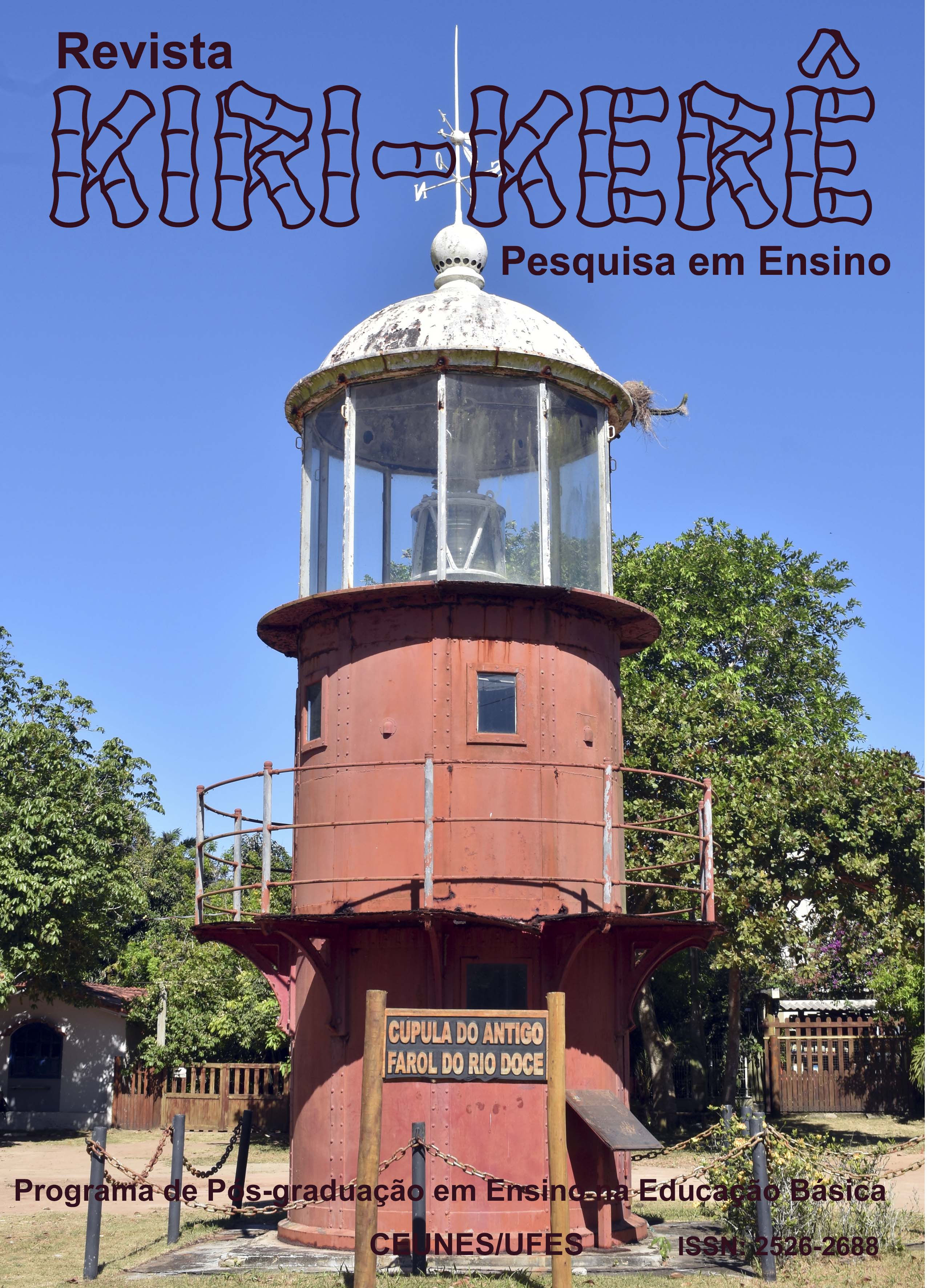Active Teaching Methodology Peer Instruction
an analysis based on Vygotsky's perspective
DOI:
https://doi.org/10.47456/krkr.v1i22.38794Keywords:
Active Methodology; Education; Learning; Peer Instruction; Teaching; Vygotsky.Abstract
The theoretical-methodological contributions found in Vygotsky’s works and studies to education and teaching practice have fomented, among others, the implementation of active teaching methodologies in school education. These methodologies, differently from the traditional teaching methodologies, seek to place the student at the center of the educational process and make the learning-teaching process more meaningful for them. The present article aimed to analyze the role developed by school education in the process of formation of the student under the “vygotskyan” optic, and present an analysis of the active teaching methodology Peer Instruction (PI), highlighting its main characteristics and potential contributions given to teacher’s practices. The main aspects and characteristics of the PI methodology were analyzed under the “vygotskyan” perspective, highlighting the way in which they discourse with the theory of development and learning related to the concepts of Semiotic Mediation and of the Zone of Proximal or Potential Development proposed by Vygotsky. This analysis corroborates the PI methodology, acknowledging that it possesses a theoretical-methodological groundwork aligned with the precepts based in Vygotsky’s theories for the development and learning processes. This analysis demonstrates that the referred methodology has potential in the promotion of social interaction amongst students, in the centralization of the student in the learning-teaching process, and in the stimulus of self-studying habits and problem solving. Therefore, this analysis demonstrates that the PI methodology can bring relevant contributions to teaching practices when implemented in classrooms.
Downloads
References
ARAÚJO, I.; Mazur, E. Instrução pelos colegas e ensino sob medida: uma proposta para o engajamento dos alunos no processo de ensino aprendizagem de Física. Caderno Brasileiro de Ensino de Física, v. 30, n. 2, p. 362-384, ago. 2013. Disponível em: < https://www.lume.ufrgs.br/bitstream/handle/10183/85464/000897618.pdf?sequence=1&isAllowed=y >. Acesso em: 14 janeiro 2021.
BRASIL. Ministério da Educação. Base Nacional Comum Curricular (BNCC) – Educação é a Base, p. 547-548, 2017. Disponível em: <http://basenacionalcomum.mec.gov.br/images/BNCC_EI_EF_110518_versaofinal_site.pdf>. Acesso em: 30 julho 2021.
BACICH, L.; MORAN, J. (Org.). Metodologias ativas para uma educação inovadora: uma abordagem téorico-prática [recurso eletrônico] / Organizadores, Lilian Bacich, José Moran. – Porto Alegre: Penso, 2018 e-PUB.
FERREIRA, E. D.; KEMPNER-MOREIRA, F. Metodologias ativas de Aprendizagem: relatos de experiências no uso do peer instruction. XVII Colóquio Internacional de Gestão Universitária. Mar del Plata, Argentina, nov. 2017. Disponível em: < https://repositorio.ufsc.br/xmlui/handle/123456789/181135?show=full >. Acesso em: 23 abril 2022.
GEHLEN, S. T. O pensamento de Freire e Vygotsky no ensino de Física. Experiências em Ensino de Ciências, v.7, n. 2, p. 78-79, 2012. Disponível em: < https://if.ufmt.br/eenci/artigos/Artigo_ID184/v7_n2_a2012.pdf >. Acesso em: 06 janeiro 2021.
LURIA, A. R. Linguagem, desenvolvimento e aprendizagem. Petrópolis, RJ: Vozes, 2014. Educação e Conhecimento.
MAZUR, E. Peer instruction: a revolução da aprendizagem ativa [recurso eletrônico] / Eric Mazur; tradução: Anatólio Laschuk. – Porto Alegre: Penso, 2015. e-PUB.
MÜLLER, M. G. Uma revisão da literatura acerca da implementação da metodologia interativa de ensino Peer Instruction (1995 a 2015). Revista Brasileira de Ensino de Física, v. 39, n. 3, p. e3403, 2017. Disponível em: < https://www.scielo.br/j/rbef/a/Vv8MmjJWmm5B3HjJ8hYwKCJ/?format=pdf&lang=pt >. Acesso em: 17 abril 2022.
MAMEDE-NEVES, M. A. C.; DUARTE, R. O Contexto dos novos recursos tecnológicos de informação e comunicação e a escola. Educ. Soc., Campinas, vol. 29, n. 104 – Especial, p769-789, out. 2008. Disponível em: < https://doi.org/10.1590/S0101-73302008000300007 >. Acesso em: 23 abril 2022.
MELLO, C. M. et al. Metodologias ativas: desafios contemporâneos e aprendizagem transformadora/ coordenação por Cleyson de Moraes Mello, José Rogério Moura de Almeida Neto, Regina Pentagna Petrillo. – 2 ed. Rio de Janeiro: Freitas Bastos, 2019.
OLIVEIRA, M. K. Vygotsky: aprendizado e desenvolvimento: um processo sócio-histórico. 4º edição. São Paulo: Scipione, 2009. Pensamento, ação e magistério.
REGO, T. C. Vygotsky: uma perspectiva histórico-cultural da educação/ Teresa Cristina Rego. 25. ed. – Petrópolis, RJ: Vozes, 2014. – (Coleção Educação e Conhecimento).
VYGOTSKY, L. S. A Formação social da mente. 4º edição. São Paulo: Livraria Martins Fontes Editora,1991.
VYGOTSKY, L. S.; LURIA, A. R.; LEONTIEV, A. N. Tradução: Maria da Penha Villalobos. Linguagem, desenvolvimento e aprendizagem. 11º edição. São Paulo: Ícone Editora, 2010.
Downloads
Published
Issue
Section
License
Copyright (c) 2024 Dalte da Silva Santos, Franklin Noel dos Santos

This work is licensed under a Creative Commons Attribution-NonCommercial 4.0 International License.
The authors accept, when sending their works, the assignment of their copyrights.


